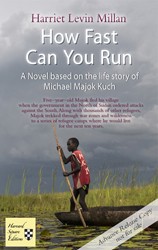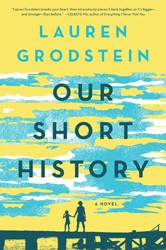4 3 2 1 is a huge, sprawling novel that details the early life of Archibald Isaac Ferguson, Archie, a Jewish boy born in 1947 in Newark, New Jersey. Somehow, one Archie becomes four Archies, all born to the same parents on the same date in the same place. The four Archies have different experiences, as do their parents and extended families — experiences that shape different lives with many commonalities. The Archies never meet but seem to exist on parallel timelines. Despite the scientific theory of different quantum states that could underlie a framework of this type, Auster makes no references to science or science fiction in the book.
The characters are sensitive to how chance events can significantly alter the present and future, and these observations provide one theme echoed in the novel’s structure. For example, one Archie recognizes that the same boy, with the same parents, who didn’t do the same things he did would now have a totally different life. “Anything was possible, and just because things happened in one way didn’t mean they couldn’t happen in another. Everything could be different.”
The novel’s narrative structure can be confusing until the reader understands that each Archie has his own version throughout the novel: versions 1, 2, 3, and 4. Each grows up in mid-century America and experiences the era’s major historical developments, with varying degrees of intensity and concern, including the civil rights movement, the Kennedy administration and assassination, the Vietnam War and anti-war movement. The Archies learn to love literature and music, writing and baseball. They are all intelligent and athletic. Their intellectual, emotional, and sexual growth are described sympathetically and realistically. The reader becomes a fan of each Archie and his significant others. The surprising losses are wrenching.
A number of themes recur in the life of each Archie, including the irrationality and cruelty of the gods and their arbitrary bestowal of gifts and punishments. Another theme is the importance of having a “calling,” a new way to be in the world. Writing, in one genre or another, becomes critical for the Archies. Rose, Archie’s mother, is a photographer who comes to love the work of looking into the faces of others. His father, Stanley, starts an appliance store, in several iterations, and finds that “the store was a man’s life — the store and the man were one.”
4 3 2 1 is an absorbing novel with vivid characters and a well-paced plot. It’s a book that certainly rewards the persistent reader — paragraphs tend to be long, often filling an entire page. And while the ending of the novel will be a letdown to some, other readers may find it clever.





